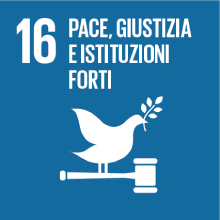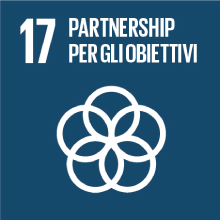INTERNATIONAL LAW MOD. 1
- Anno accademico
- 2021/2022 Programmi anni precedenti
- Titolo corso in inglese
- INTERNATIONAL LAW MOD. 1
- Codice insegnamento
- LM5740 (AF:356211 AR:187287)
- Lingua di insegnamento
- Inglese
- Modalità
- In presenza
- Crediti formativi universitari
- 6 su 12 di INTERNATIONAL LAW
- Livello laurea
- Laurea magistrale (DM270)
- Settore scientifico disciplinare
- IUS/13
- Periodo
- II Semestre
- Anno corso
- 1
- Spazio Moodle
- Link allo spazio del corso
Inquadramento dell'insegnamento nel percorso del corso di studio
The first module is designed to provide a solid knowledge of international law, with some insights into current issues.
The aim of this course is two-fold:
1) to equip students with legal language necessary to understand basic international legal instruments;
2) to equip the student with critical legal reasoning skills so that they can apply what they learn in the books in the analysis of current phenomena.
There has never been a more exciting time to study International Law. Issues of International Law are at the forefront of public debates be they on globalisation, armed conflicts, diplomacy, human rights, international organisations, transnational corporations or dispute resolution. International Law today shapes decisions by States, it penetrates into domestic legal systems giving rights event to individuals and companies. This course is intended to introduce students to concepts and problems of international law and of the international legal system in its structure and functioning. The course will cover traditional major topics in this field such as the sources and subjects of international law, the jurisdiction of states, international law and the use of force, and the relationship between international law and domestic law of states. It will also address other important topics such as the international law of human rights, environmental law, international criminal law, international migration and refugee law (mod. II). The course will review and discuss a number of international law cases decided by international and regional tribunals, as well as certain treaties, resolutions and other international legal instruments of importance.
Risultati di apprendimento attesi
1) should demonstrate knowledge and understanding in international law, of the subjects and sources of international law, of the mechanisms of resolution of disputes, of the prohibition of the use of force, of human rights law;
2) could apply their knowledge and understanding in a manner that indicates a professional approach to their possible work or vocation (internships and work in NGOs, international organisations, agencies, etc), in particular concerning the mechanisms of protection of human rights;
3) should have the ability to gather and interpret relevant legal instruments (both soft and hard law) of the present situation to elaborate legal reasonings that include reflection on relevant legal and political issues;
4) could communicate information, ideas, problems and solutions to both specialist and non-specialist audiences;
5) should have developed those learning skills that are necessary for them to continue to undertake more advanced courses or further study with a high degree of autonomy.
Prerequisiti
Contenuti
2. What is international law for?
3: The sources of international law
4: The law of treaties
5:Statehood, self-determination and recognition (with specific focus on the most recent cases)
6: International organisations
7. The individual
8: Jurisdiction and sovereignty
9: Immunities
10: The relationship between international and national law
11: State responsibility, countermeasures and sanctions
12: The peaceful settlement of disputes, with specific focus on the international court of justice
13: The application of international law: paving the way for module 2. Approaches to international law.
Testi di riferimento
Further material will be available on moodle: decisions and resolutions to be discussed in class for attending students.
Additional readings (for those who would like to continue his/her studies in international law):
Carreau-Marrella, Diritto internazionale (new edition) also available in French.
Modalità di verifica dell'apprendimento
With regard to the first module, the exam is aimed at demonstrating knowledge and understanding of international law, of the subjects and sources of international law, of the mechanisms of resolution of disputes, of the prohibition of the use of force, of State responsibility. Concerning the second module, the exam has the purpose to assess knowledge of the fields of application of international law as explored in the course, namely international environmental law, international criminal law and international human rights law.
The questions are formulated on model case studies, which are aimed at verifying the capacity of the student to support an argument and apply what studied in the book to current situations and international crises. Students have to solve model case studies by applying legal instruments and procedures studied during the course.
A mid-term assignment will be scheduled for those that attend the course. The mid-term will modify the final exam, which will be composed, for those who pass it, of two instead of three questions.
Modalità di esame
Metodi didattici
Students attending the course will be provided some additional materials for reflection (judgments, resolutions, legal documents) on which a discussion in class will be based.
It will include the analysis of (real or provided by the professor) case-studies on the resolution of disputes.
Altre informazioni
Students that would like to write a thesis in international law can ask further information to the professor after the exam.
Obiettivi Agenda 2030 per lo sviluppo sostenibile
Questo insegnamento tratta argomenti connessi alla macroarea "Cooperazione internazionale" e concorre alla realizzazione dei relativi obiettivi ONU dell'Agenda 2030 per lo Sviluppo Sostenibile


